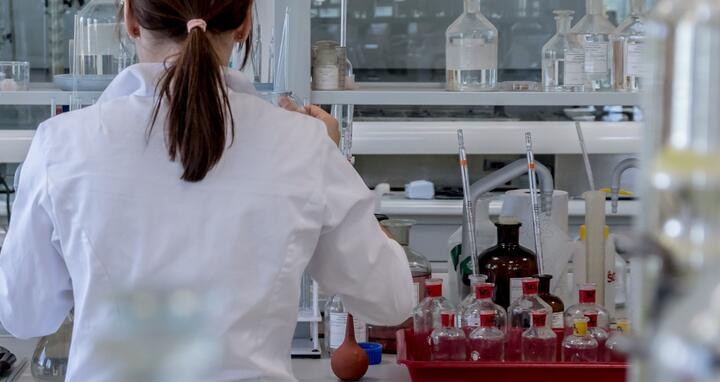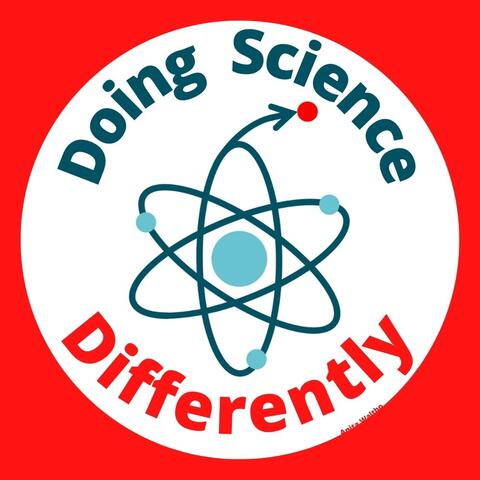🎧 Podcast: Doing Science Differently
How do today’s measures of success in science affect research integrity? Why are power abuse and harassment especially prevalent in the academic environment, and how can we combat that? These are just a couple of the important questions discussed in the Berlin-based early career researcher (ECR)-run podcast Doing Science Differently. The mini podcast series explores four key themes affecting academic research – reproducibility, power abuse, measures of success and mental health. Each episode features a guest who is leading a change-making initiative, they are available wherever you get your podcasts!
Episode summaries
Power abuse and harassment
Today, there is an increasing amount of evidence that workplace bullying and harassment are more widespread and systemic than officially acknowledged or discussed. This very often leads to poor mental health and lower work motivation. Fortunately, ‘taboo topics’ such as the abuse of power are being called out and actively tackled. This episode introduces listeners to initiatives which are put in place to address these issues in Berlin-based research institutions, including Max Delbrück Center’s own anti-harassment task force which resulted in new guidelines against discrimination, bullying and harassment. Professor Sabine Oertelt-Prigione is the researcher and organizational consultant behind these reforms: “So, I’m trying to (…) build really a critical mass of people who can start talking about this, who have the words to describe what's going on, who learn to think in a different way, to work together in order to change that.”
Reproducibility
Research is both innovative and self-correcting – or maybe not? Are we losing robustness by constantly aiming for novelty and breakthrough results? In 2011, the Center for Open Science set out to estimate the robustness of findings in the field of cancer biology by trying to replicate 50 landmark papers published between 2011-2012. The second episode of the podcast features Dr Tim Errington, Head of Research at the Center for Open Science, and manager of the Reproducibility Project: Cancer Biology. Listeners will learn more about replicability and factors that influence it, challenges encountered during the project, and what researchers can do to change the lack of replicability in scientific publications and their attitude towards errors.
Success in Science
Is our aim advancing science or advancing careers? What makes a ‘successful’ scientist? And what does luck have to do with it? Topics such as research assessment, research integrity, and academic brain drain are coming into focus, and it is increasingly important to understand how research evaluation impacts research integrity. “I became very unhappy with the research that I had, that I was doing, because I felt that I couldn't be entirely honest,” podcast guest Dr Noémie Aubert Bonn. Listeners will hear her personal journey from the fields of neuroscience and psychology to meta research focusing on bioethics, specifically research integrity. Additionally, they will also learn how early career researchers can build a successful and integrous career.
Mental health
The likelihood to experience depression and anxiety is six times higher in graduate students as compared to the general population. The high-pressure environment as well as other aspects of academic research contribute to or even cause mental health problems. However, there is still a strong stigma surrounding mental illness and a lack of institutional support. Dragonfly Mental Health is a global non-profit that aims to change the climate and culture surrounding mental health in academia through seminars, skills trainings, and the creation of peer networks. In the fourth episode of the podcast Dr Wendy Ingram, CEO as well as co-founder of Dragonfly Mental Health, will tell listeners more about the organization and her personal journey of becoming an academic mental health advocate. She says: “We realized everyone was struggling, everyone was having a really hard time. And nobody was telling each other about it. Everyone thought they were the only one struggling.”
How the Podcast started
SPOKES, a subproject of the BIH / Charité Wellcome Trust Translational Partnership, brought together a group of early career researchers – including former PhD students at the Max Delbrück Center, Marta Oliveira and Eric Danner – who were active or interested in grassroots movements to improve scientific research in topics ranging from mental health to reproducibility. This Think Tank received a small grant to develop, conduct, and complete a project of their own choosing to improve translation and the culture and practice of research in Berlin and beyond.
Anita Waltho
After much debate, the group formed the idea to create a podcast to shine a light on individuals and initiatives improving the academic research environment. A sub team broke away to embark on this challenge and Doing Science Differently was born. Over the next years, the team taught themselves the ins and outs of podcasting, interviewed guests, spent many hours meticulously researching and then transcribing their episodes and enlisted the additional help of a sound engineer and social media/marketing manager – me, current MDC PhD student Anita Waltho. This November the podcast was released (Twitter: @DoSciDiff) and all episodes are now available wherever you get your podcasts.
Text: Anita Waltho
“Doing Science Differently“ is a project of: Tracey Weissgerber (SPOKES manager), Friederike Kohrs (project manager), Constance Mary Holman (project manager), Constantin-Yves Plessen (host and producer), Joachim Fuchs (producer), Christine Knoll (host and producer), Marta Oliveira (producer), Eric Danner (host), Anita Waltho (marketing manager) and Georgio Cattaneo (sound engineer).






